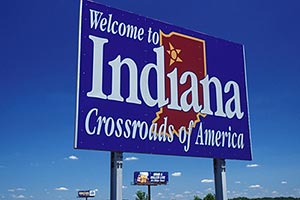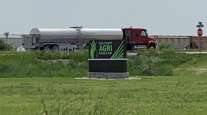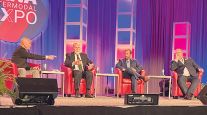Indiana Senate Committee Votes to Phase in Gas Tax Increase

An Indiana Senate committee March 28 pushed through plans to raise the gas tax by 10 cents and open Indiana interstates to tolling.
However, their plan which raises $672 million in the second year, deviates from the House proposal.
The committee amended the bill to phase in the gas tax over two years instead of imposing it all at once. It also lowered the proposed increase in the diesel fuel tax to 6 cents from a dime, phased in over two years.
Under the Senate proposal, Hoosiers would end paying a total gas tax of 28 cents a gallon and a diesel tax of 22 cents per gallon by 2018. It also removes the sales tax on diesel.
The amendment also doesn't tinker with the use of the gas tax revenue, unlike the House plan which called for directing all of the revenue to roads, leaving a hole in the general budget. House leaders had added a cigarette tax increase to the budget to make up for that loss.
The Senate Tax and Fiscal Policy Committee chairman, state Sen. Brandt Hershman, said the conversation over gas sales and cigarette taxes would be more appropriate during budget negotiations.
The Senate committee's plan also added a $5 new tire fee and $100 commercial license plate fee, in addition to the $150 electric vehicle fee and $15 vehicle registration fee the House language had in place.
Senate and House leaders have said they need an estimated $1.2 billion a year to maintain and build Indiana’s roads.
"We're in a situation where we need to either do something or be left behind," Senate Leader David Long said at the start of the session.
However, neither chamber’s plan meets that funding level.
The solution? Tolling. The Senate left in language in the bill that allows the Indiana Department of Transportation to seek approval from the federal government to toll any interstate. Hershman said that would likely mean a maximum of 5 cents per mile on passenger traffic and 15 cents on commercial vehicles.
"It may not be the solution for today, but for the long term I don’t think you’re going to realistically be able to deal with this problem without taking that path," said state Sen. Luke Kenley, who has championed tolling over other diminishing returns like gasoline taxes.
The amended bill doesn’t specify which roads would be targeted or if it would only apply to new roads. Sen. Mike Delph said the measure would essentially give the governor a "blank check" and he could hypothetically choose to put tolls on I-70, I-65 and I-465.
However, Hershman said most discussion has revolved around the possibility of tolling Interstates 69 or 70.
"They could ask for tolling of existing lanes or I believe they could ask for tolling only on new lanes," Hershman said. "We do not limit them one way or another."
Kenley added that they likely would not toll inside the I-465 loop or on I-465 itself so that they would not target commuters, but that protection is not in the bill itself.
The Alliance for Toll-Free Interstates is pushing back on the proposal and created a petition against the bill. Spokeswoman Stephanie Kane called the legislation "sneaky," because citizens don't know where specific tolls will be, and might oppose them when it's too late after the governor already has the authority to add tolls.
"I think that the provision removing the legislative authority is one of the most concerning parts of the bill that people all over the state should be concerned about," Kane said. "It really removes an important set of checks and balances."
Up until the House's original road funding plan was voted on in committee, the Senate had been vague about the plans it supported.
Gov. Eric Holcomb has not specified which methods he prefers for generating road funding, saying he's open to a "menu of options."
The committee voted 11-2, with only Democrats Sen. Mark Stoops and Sen. Jean Breaux voting against. The bill now moves to the Senate floor. Ultimately, Senate and House leaders will have to work out compromise on a road funding plan and that likely will not come until this year's legislative session winds to a close by April 29.
Distributed by Tribune Content Agency, LLC




